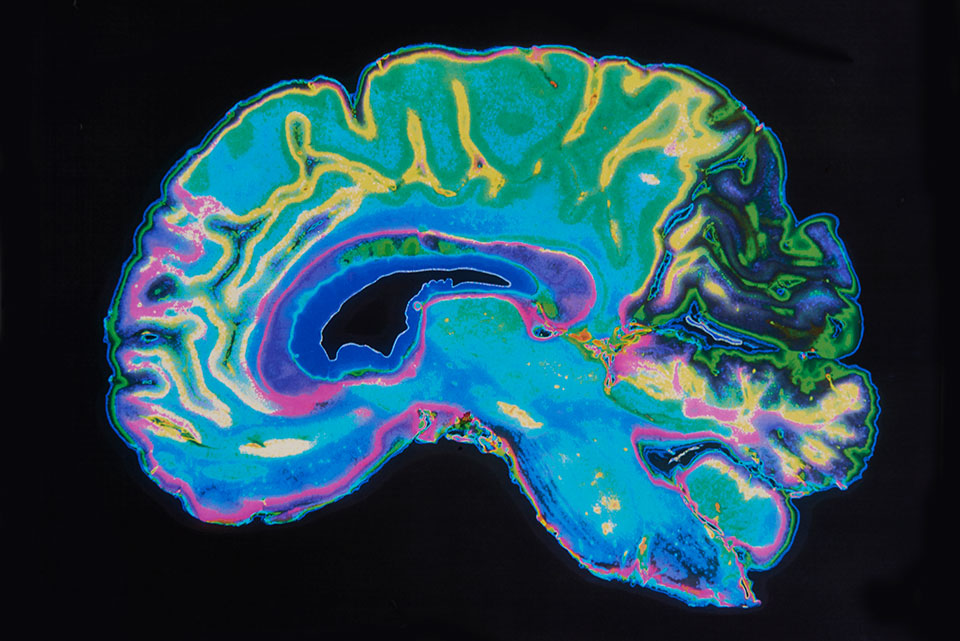Psychedelics
Algernon Pharmaceuticals Looks to Advance DMT Stroke Research
Algernon wants to use psychedelics as a therapy for stroke victims.
The post Algernon Pharmaceuticals Looks to Advance DMT Stroke Research appeared first…


Treating stroke with DMT (N, N-Dimethyltryptamine) is a novel idea being pursued by Algernon Pharmaceuticals (CSE: AGN) (FRANKFURT: AGWO) (OTCQB: AGNPF), a Vancouver-based clinical stage drug development company.
The opportunity is big, with the global stroke treatment market is expected to reach $15 billion by 2027. Algernon’s plans include being the first psychedelic company with a product to address the market’s needs.
Phase 1 of their clinical trial began screening subjects in late 2022, with Phase 2 expected in the first quarter of 2023.
The company has taken steps recently to both advance and expand its clinical trial work, and to raise capital.
For example, in October 2022, the company entered into an Investigator-Initiated clinical trial agreement (CTA) with Yale University to investigate multiple intravenous doses of DMT for the treatment of depression. Investigating DMT for psychiatric disorders like depression isn’t completely new, but the company hopes the data collected from the study will help inform its stroke work.
Then in January, Algernon created Algernon NeuroScience (AGN Neuro), a new wholly owned private subsidiary, to advance the DMT stroke program. The subsidiary’s creation followed Algernon’s decision in December 2022 to withdraw its registration filing with the SEC to be listed on the Nasdaq under the symbol AGNP.
Algernon values the psychedelic DMT research program at $20 million and has formally completed an asset transfer and trademark license agreement, transferring all DMT research program assets into AGN Neuro. Algernon also signed a management agreement with AGN Neuro to provide all day-to-day operations, as well as management of the DMT stroke clinical trial program, according to a press release.
AGN Neuro will remain a private company until the completion of a Phase 2a stroke study planned for later this year. AGN Neuro will then review and consider a potential direct IPO listing onto the Nasdaq.
The subsidiary filed a Form 1-A offering statement with the U.S. Securities and Exchange Commission (SEC), hoping to be qualified to raise up to $10 million by offering up to 37.5% of its common shares, with Algernon Pharmaceuticals keeping majority ownership under a Tier II Regulation A+ offering (Reg A+). The capital raised will be used for research, development, and program management costs related to the completion of the Phase 1 and Phase 2a DMT stroke study.
Regulation A represents an exemption from registration for public offerings and is seen as a sort of mini-IPO. An amendment to Reg A, Regulation A+, became effective June 2015. Regulation A+ may offer a potentially viable public offering on-ramp for smaller issuers – an alternative to a traditional registered IPO – and either an alternative or a complement to other securities offering methods that are exempt from Securities Act registration, according to the SEC.
“Reg A+ financings continue to be a very successful way of raising capital by allowing the innovative online and digital marketing of securities to the general public on a global scale,” Christopher Moreau, CEO of Algernon Pharmaceuticals, said in the press release announcing the 1-A filing. “By creating AGN Neuro with the sole focus of advancing the DMT stroke research program through its future clinical trials, we are working to create an exciting new investment vehicle with the goal of enhancing shareholder value in the process.”
Algernon is taking a microdosing approach to its DMT treatment, which the company believes may help them on a quicker pathway to regulatory approval, including a breakthrough therapy designation from the Food and Drug Administration, which the company plans to apply for soon.
Algernon is focusing on sub-hallucinogenic, or microdoses, of DMT by intravenous administration. The treatment eliminates the psychedelic experience, which is an important consideration when treating a patient who has just suffered a stroke. Medications that cause a hallucinogenic response could cause unwanted confusion and stress.
Algernon’s research comes on the heels of a study by researchers in India using mice in 2021, where the differences between human ischemic stroke and experimental stroke in animal models was investigated. Mice were chosen because they are relatively inexpensive and their cranial circulatory anatomy is reasonably similar to the human neurovascular anatomy, according to the study.
“Innovative animal models more closely resembling human strokes, better techniques in functional outcome assessment, and better experimental designs generating clearer and stronger evidence may help realize the development of truly neuroprotective drugs that will benefit human ischemic stroke patients,” the study found.
While Algernon will investigate DMT to treat a patient as quickly as possible after the stroke occurs, it will also investigate the potential of the drug as a treatment during the rehabilitative process. Algernon also has active research programs for idiopathic pulmonary fibrosis chronic cough, and chronic kidney disease.
The post Algernon Pharmaceuticals Looks to Advance DMT Stroke Research appeared first on Green Market Report.
dmt
n-dimethyltryptamine
dimethyltryptamine
psychedelic
microdosing
therapy
depression
hallucinogenic
shares
cse
nasdaq
pharmaceuticals

Psychedelic Search Trends in 2023
Take a look at this 2023 search volume chart. Do you think you can guess what’s happening? I was pretty shocked when I noticed this spike for December…
Here Are the Champions! Our Top Performing Stories in 2023
It has been quite a year – not just for the psychedelic industry, but also for humanity as a whole. Volatile might not be the most elegant word for it,…
Psilocybin shows promise for treating eating disorders, but more controlled research is needed
Recent psychedelic research shows promising results for mental illnesses and eating disorders, with surveys and reports indicating psilocybin-assisted…













